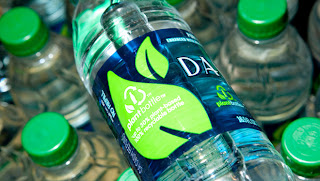The two companies further The world's largest soft drink producers, Coca-Cola and Pepsi, have always fought to outdo each other, their great rivals. First, to be the best-selling soft drink in the world, then to bring out a low-calorie version, then a low-caffeine version, to broadcast the most original advertisements, and so on.
And now it's time for ecology, as the two brands are in a race to see which one can market packaging that does not contain plastic derived from petroleum first. This competition is highly regarded by environmentalists around the world, as they are sure to score.to guidelines in the global soft drinks industry.
Both companies areThey are allocating funds to the researcheithern how to make plastic from plant-based material, i.e. natural and biodegradable. Then, the time will come to offer it to the consumer and convince them that this is the best packaging. But there is still some time until that day: neither of the two major soft drinks multinationals has enough confidence in green technology to market the new packaging.
Coca-Cola is working with three biotechnology companies, Virent, Gevo and Avantium, to design a plastic packaging derived from plants, also called bioplastic.
Pepsi also aims to be the first to obtain the label recognizing its packaging as 100% green. They have announced that in 2012 they will carry out a test to produce 200,000 bottles using a plant as raw material. However, the company's executives did not dare to predict the exact moment of the start of large-scale production, since, apart from the tests of quality, safety and resistance of the packaging, it is necessary that it be economically profitable. In short, the company is fighting to be the most ecological (at least as far as packaging is concerned), but it is not about losing money either.
In the historic fight, Coca-Cola struck the first blow in 2009, when it began selling Dasani water in the United States in bottles made from a bioplastic 30%. In this regard, the company has assured that, by 2020, all its bottles would be composed of that percentage of 30% plastic derived from plants.
However, we will have to wait some time for a 100% container without petroleum-based plastic.
![]()

